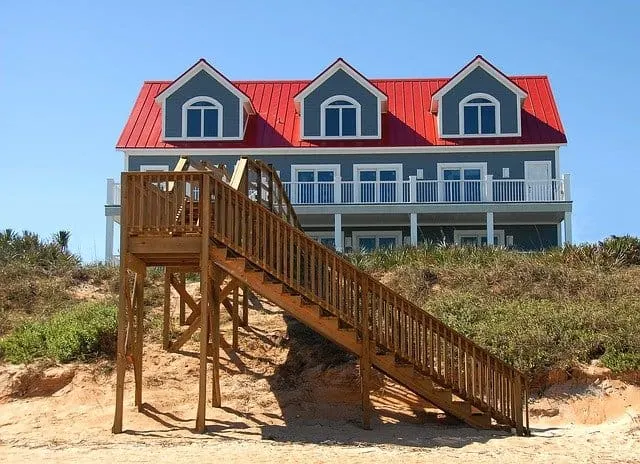
If you’ve ever been on vacation and thought to yourself, “I should live here,” then you may want to be in the market to purchase a vacation home.
Of course, owning a vacation home sounds expensive and a luxury for the super-rich, but just like buying your primary residence, there are ways to make buying a vacation home a reality.
The first thing to consider is location.
There are significant advantages to owning a vacation home, the first of which is that you have a permanent home to vacation in whenever you feel the need.
This brings us to the all-important question: where to buy a vacation home?
Some examples of some of the top real estate to purchase vacation homes include:
- Smoky Mountains, Tennessee
- Cape Coral, Florida
- Charleston, South Carolina
- Savannah, Georgia
- Palm Springs, California
- Austin, Texas
- Nashville, Tennessee
- Big Bear, California
But according to Vacasa reports, Phoenix and Tucson rank in the top-10 of real estate to own for vacation opportunities. With both cities, you have vibrant city life, plenty of outdoor activities, and a chance to visit nearly year-round.
Advantages Of Owning A Vacation Home
There are many pros to owning a vacation home, from having a better quality of life to making a passive income when you’re not using the house.
An investment opportunity: Owning a vacation home will most likely appreciate, earning you equity and wealth over the time of ownership.
Similarly to your primary residence, a vacation home allows you to leverage the money a lender provides to secure a long-term mortgage that you can pay down, decreasing your debt. At the same time, the home gains value from appreciation.
Save On Vacations: You’ll have an opportunity to eliminate travel and hotel stays at your vacation home, allowing you more time to spend on extended vacations. An added benefit is remote work opportunities that would enable you to extend the family vacation while you attend to some unfinished business.
Give Your Life A Boost: Having a vacation home will allow you a place to recharge and relax in a location separate from your regular home. For example, if you live in the city and have a vacation home in a rural area, you’ll have a healthier environment and outdoor activities to boost your quality of life.
Earn Passive Income: With a vacation home, you can make money on it by renting it out to people, either friends and family, or through a rental app like Airbnb and VRBO. In addition, you can provide detailed lists that highlight the local community and events to make your guests feel welcome, and even consider a discount code for future visits, helping you secure a regular passive income opportunity.
If you go the route of vacation rentals, be sure to include some additional insurance on the property, as well as make the house more secure. You should install outdoor security lighting, maybe an outdoor camera such as a Ring doorbell, added locks on the doors and windows, and an interior alarm system for when the home is vacant.
The key is to provide your guests with a sense of security and privacy and protect your investment when you’re renting the property out.
A crucial factor to consider when investing in a vacation home is the landlord-friendliness of the state where the property is located. States like Alabama, Florida, and Texas offer a combination of low property taxes, lenient rent control laws, and straightforward eviction processes, making property management smoother and more profitable. Choosing a landlord-friendly state can not only ease the management process but also maximize your investment returns.
Vacation Rental Property As An Investment Opportunity
If you’re on the fence about whether you can make a passive income opportunity by renting your vacation home, the statistics don’t lie.
Since 2021, the vacation rental industry in the United States has been the most lucrative worldwide, with valuations of $15 billion. Vacation companies such as VRBO account for over 30% of the properties available, and 70% of all vacation rental companies are small businesses or independently owned residences.
The truth is that unless you plan to make your vacation home your primary residence or a retirement opportunity, you should consider renting out your property for the down times that you’re unavailable to be there.
It’s a way to help other people pay down your mortgage without you needing to do the grunt work of regular property management. The best part is that you can control when and how long you choose to rent out your vacation home, so it’s available for you when you want it to be.
If owning a vacation home is something on your radar, take a moment and consider buying one that you can also rent out. The advantage of making passive income while the house sits vacant is hard to pass up.
- Sagittarius Man & Gemini Woman Love and Sex Compatibility - January 31, 2024
- Taurus Ascendant Rising Personality Traits in Men (Guide) - January 31, 2024
- How to Seduce and Attract a Sagittarius Man (Seduction Tips) - January 31, 2024
